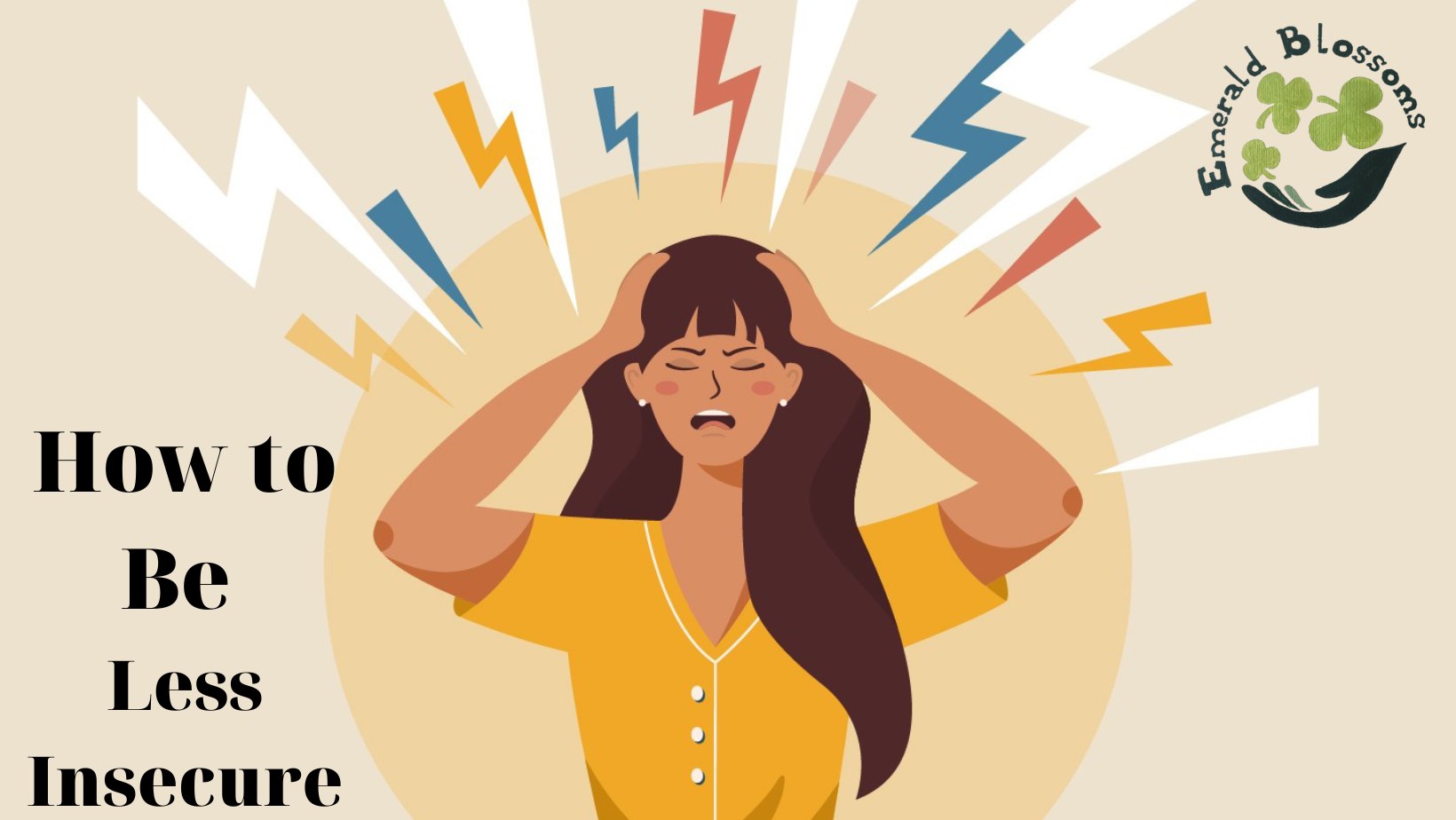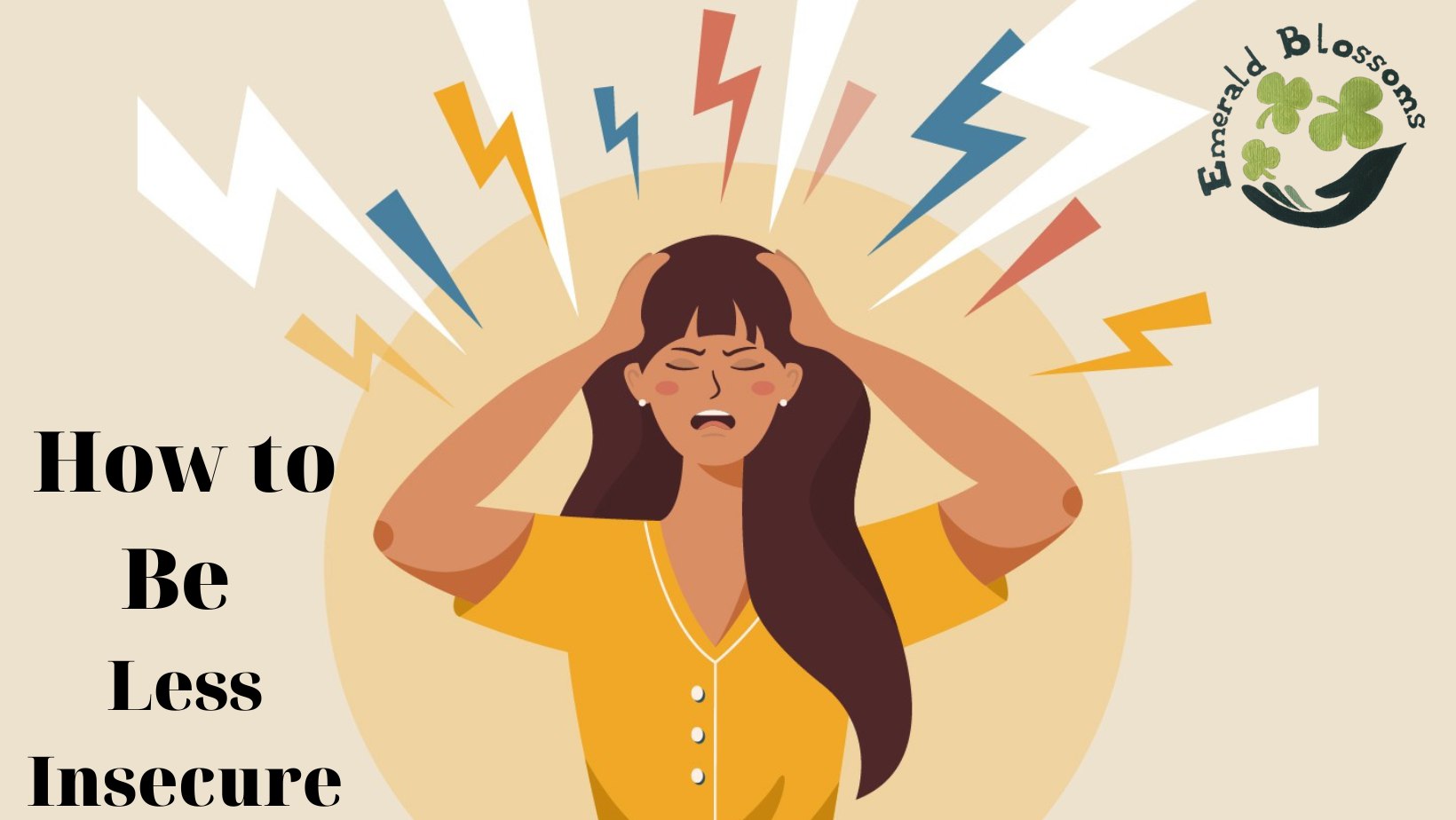How to Be Less Insecure
Being insecure means feeling like you’re inadequate or not good enough.
Insecurities are negative thoughts that can cause you to doubt yourself. They can arise in different areas, such as your relationships, your work, your body image, or your ability to navigate social situations, says Sabrina Romanoff, PsyD, a clinical psychologist and professor at Yeshiva University.
According to the American Psychological Association, insecurities can make it difficult for you to trust others, have healthy relationships, be confident of your abilities, and reach for your goals.1 It can be hard to be yourself and be comfortable in your own skin if you’re constantly feeling nervous, anxious, or hesitant.
This article discusses some potential causes of insecurity, as well as some strategies that can help you be more confident and feel less insecure.

Characteristics of Insecurity
These are some characteristics of insecure people as compared to people who are more secure, according to Dr. Romanoff.
Potential Causes of Insecurity
These are some potential causes of insecurity, according to Dr. Romanoff:
⦁ Childhood trauma: Traumatic childhood experiences such as being bullied, mistreated, neglected, or abused by caregivers can make you feel like you're not good enough. This can affect your confidence and cause you to feel insecure because you may not believe you are worthy of the love or support of others.
⦁ Unhealthy relationships: Being in relationships where you were treated poorly by friends, family members, colleagues, or romantic partners can make it hard for you to trust others. Worse, it can make it hard for you to trust your instincts about whether or not other people are trustworthy.
⦁ Setbacks: Experiencing a major setback, such as a divorce, break-up, or job loss can take a toll on your self-esteem and self-confidence, making you feel insecure.
⦁ External focus: We are often taught to value external factors like awards, medals, and trophies more than internal factors like hard work and dedication. This focus on extrinsic motivators can make it hard for you to develop a strong sense of your own self-worth because you’re relying on others’ approval to feel secure.
⦁ Social and cultural factors: Society often idealizes impossible standards of beauty and unattainable lifestyles. Comparing yourself to these unrealistic standards can make you feel insecure about yourself.

Effects of Being Insecure
Below, Dr. Romanoff unpacks how insecurity can have a negative impact on a number of different areas in your life.
Relationship Difficulties
Being insecure can cause you to doubt your relationships and question where you stand with others. You may assume others don’t want to be around you or fear that they might abandon you.
These fears can be self-fulfilling prophecies because they can cause you to behave in ways that push others away, ultimately leading to failed social and romantic relationships. For example, doubting your partner, checking up on them, or constantly thinking they’re being unfaithful to you can lead to fights and cause the two of you to break up.
Career-Related Difficulties
Being insecure can make you more indecisive and less likely to take risks when it comes to your professional life. This can cause you to play it safe and hold you back from pursuing opportunities you want.
Your insecurities can also make you more sensitive to criticism, which can make it hard for you to accept constructive feedback. This can lead to career-related difficulties, because you may be more likely to dwell on your shortcomings than channel your energy into improving.
Furthermore, a lack of confidence can work against you. Being confident in the workplace is important because people accept what you project. If you believe you are competent, smart, and capable, others are much more likely to believe you. Projecting confidence makes you more likely to appear credible, make strong first impressions, and deal with challenges successfully.
How to Be Less Insecure
Dr. Romanoff suggests some ways to be more confident and less insecure:
⦁ Identify your triggers: Start paying attention to the types of situations that trigger your insecurities and note your reactions to them. It may be helpful to write them down in a journal so you can become more self-aware and track the areas you need to work on.
⦁ Challenge negative self-talk: As you become more aware of the inner voice that’s putting doubts in your mind, it’s important to start challenging it. For instance, if the voice is saying “Don’t try to dance because you’re a horrible dancer and everyone will laugh at you,” tell yourself “I’m going to dance because I love dancing and the only thing I care about is having fun.”
⦁ Focus on your strengths: People who struggle with confidence tend to have a bias about everything they believe they cannot do. Instead, focus your attention toward the things you do well and the areas in which you would like to continue to improve.
⦁ Channel confidence: Try to channel times in your life when you were feeling confident and embody that feeling. For example, think about a time when you were proud of yourself (for example, when you made a great presentation, gave an important speech, or managed a difficult conversation). Get back into that head space and see how your thought patterns and body language also radiate confidence.
⦁ Get comfortable with being uncomfortable: Stop avoiding things that make you uncomfortable and confront them instead. Start leaning into the things that scare you and be willing to face the unknown. Commit to doing something every day that pushes you to grow and become a stronger person.
⦁ Consider therapy: If your insecurities are affecting your relationships or holding you back personally or professionally, it may be helpful to see a mental health professional who can work with you on overcoming your fears and anxieties.
Insecurity can be a terrible feeling because it can make you doubt yourself, your abilities, your relationships, and your goals. It can prevent you from pursuing things you want and cause you to act in ways you don’t necessarily want to. It’s important to work on your insecurities so you can start living the life you want.


